Crop Mob: A lesson in theory
innovation n 1 : the introduction of something new 2 : a new method, idea or device
Crop Mob is simply an innovation in farm work and organizing. Taking the old idea of community labor, a small group of farm interns created a new model, a model of organizing that takes experienced and novice farmers (and other interested folks) and puts them in a shared space at a particular farm at a particular time. Within this space, the group tackles a set of tasks using the directions given by the host farm and the experience each person brings to the space. At the end of a few hours of work they share a meal. Along with the meal is the extended value of a shared experience, an experience unique for each farm and to each participant.
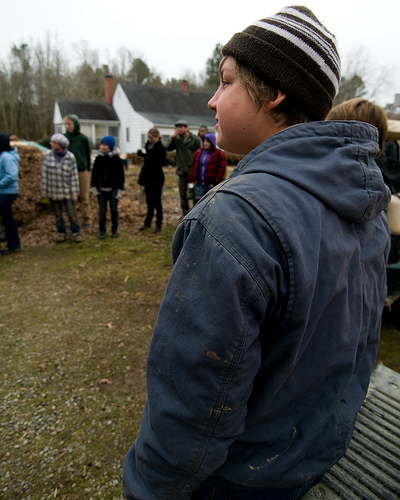
According to sociologists, there are five stages in the adoption or rejection of any innovation (called Diffusion of Innovation). The first step is the exposure of an individual to the idea without them having any prior information about the idea. This was basically the mindset of the originators of Crop Mob and anyone who comes upon it without ever hearing about it beforehand.
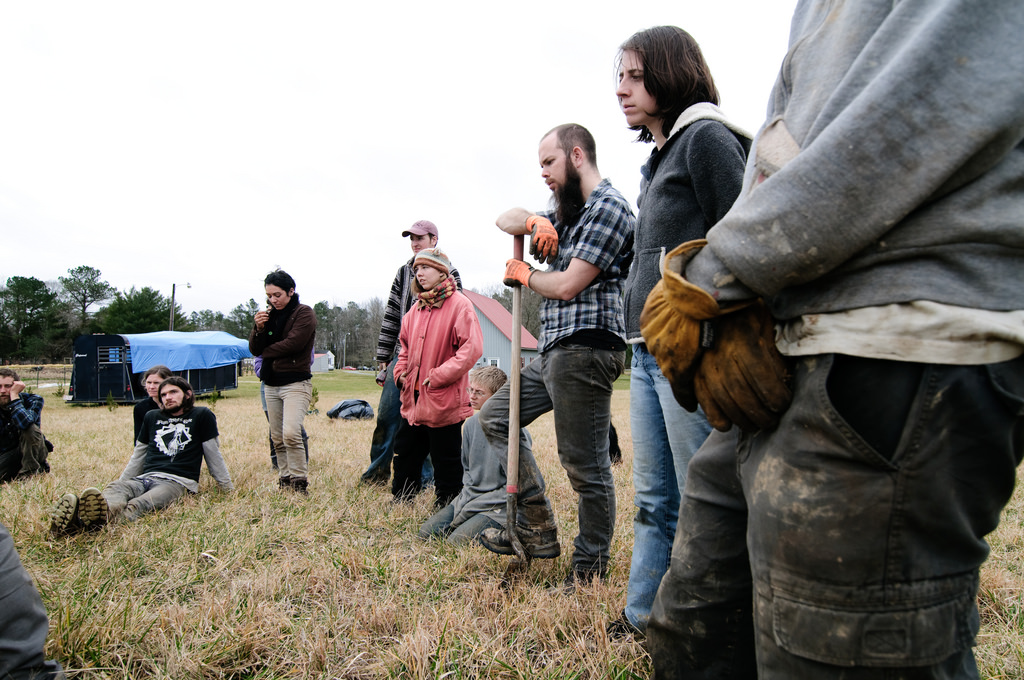
The next step is the individual actively seeking out information about the innovation or idea. This can be asking another participant, doing web searches, emailing. Through this information the individual proceeds to the next step, which is making a decision to accept or reject the idea.
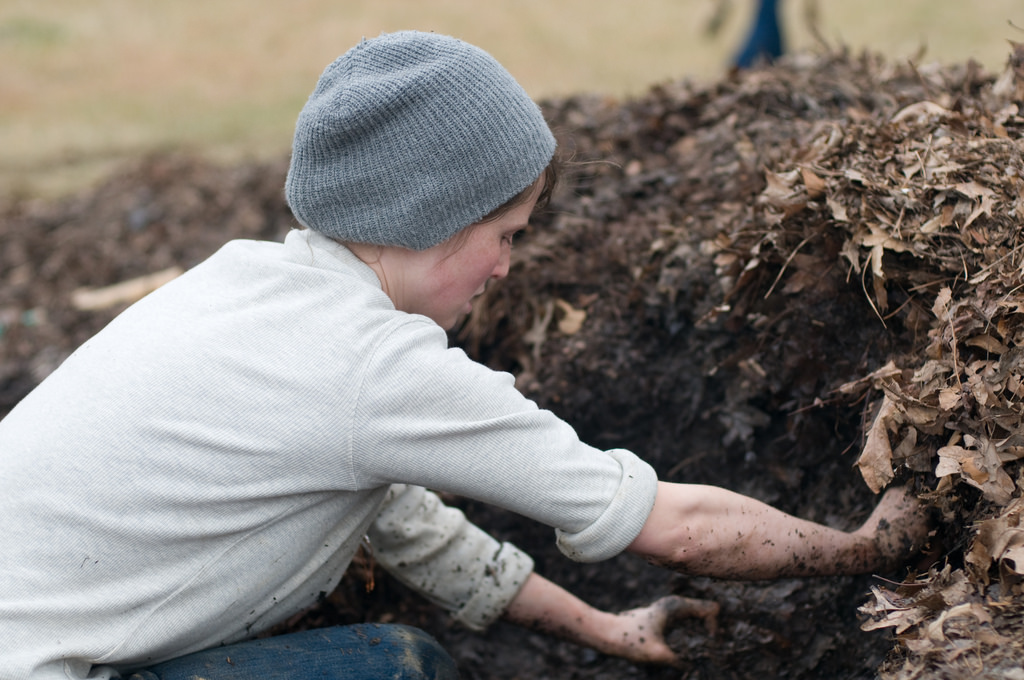
This step is worth exploring, as I feel that misinformation about Crop Mob really affects this stage. With any innovation there is skepticism, there is doubt, there are wildly off-the-mark perceptions. One of the most frequent is that Crop Mob is a magical free labor pool that simply appears at your farm or garden and runs through the to-do list. The Crop Mob is sometimes also misconstrued as an idealistic gang of urban lefties, off to do their good deed in the country and shed some of that built up liberal guilt.
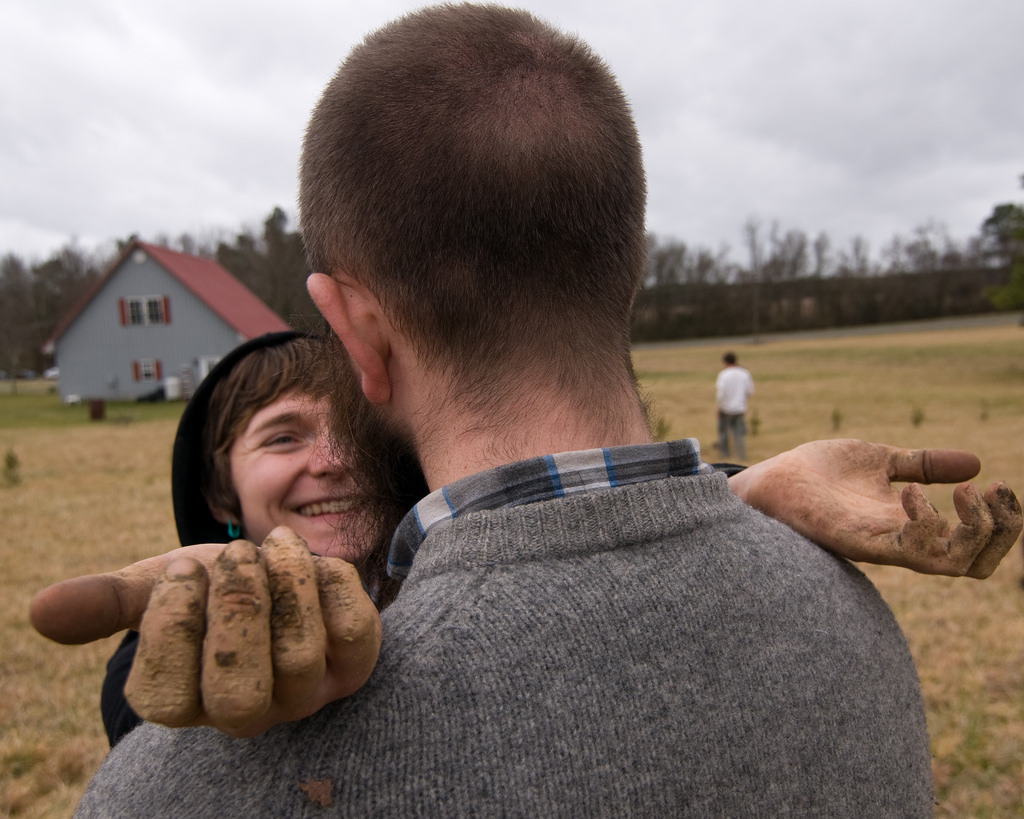
Yet another amazingly false idea is that Crop Mob is a group of inexperienced idiots who don’t know one end of a shovel from the other. They will wreck your years of careful farm planning and layout, damage all your equipment, let your chickens out to the swarming wolves and hawks, and destroy all your saved seed by mistaking it for lunch. I personally feel that this misconception is keeping the Crop Mob from interacting with some of the more established sustainable farms in our area. I know there are many of these farms that would like to share their experience with young and new farmers but are afraid that we just don’t have what it takes to restrain ourselves in their space.
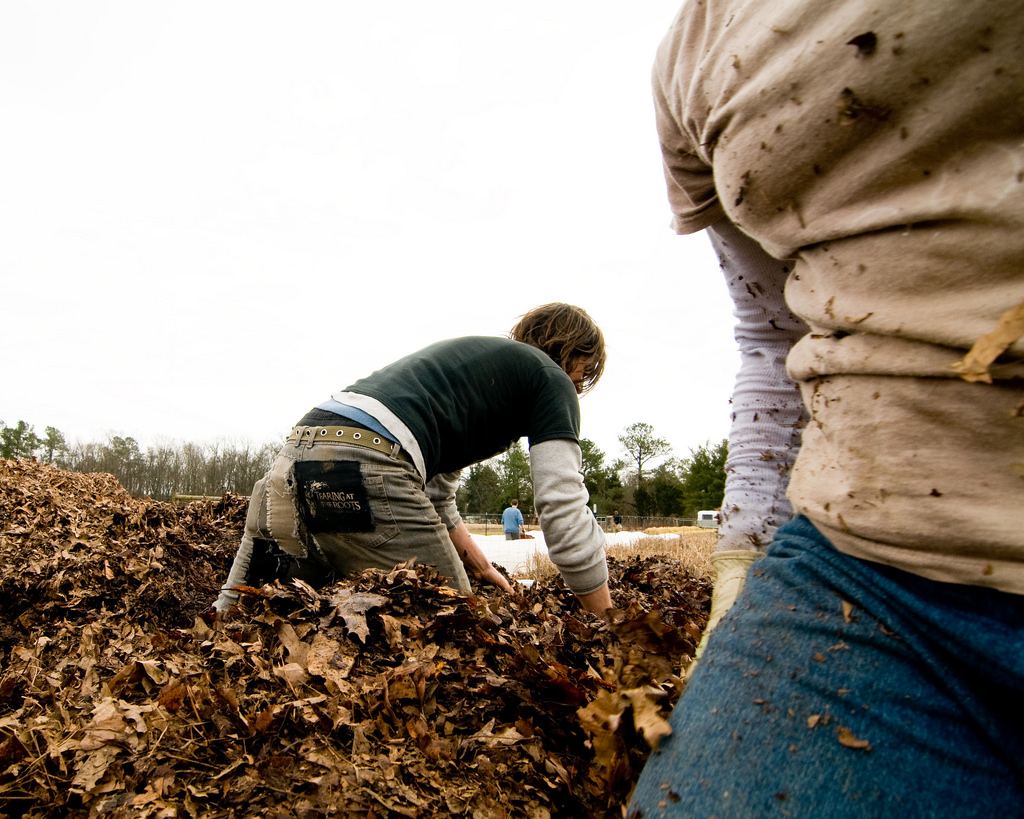
The fourth stage of the process is execution or use of the idea. Folks show up and work with the mob for the day, using their experience to further evaluate the idea for themselves. If they don’t like it, they won’t come back and do it again. It is hard to evaluate how many people have chosen not to come back to Crop Mob. There is no way to really measure their reaction since we are not setup to do exit interviews with every participant. Reasons for not coming back are probably extremely variable – not feeling welcomed, the work was too hard or too easy, the weather was horrible, expectations were not met.
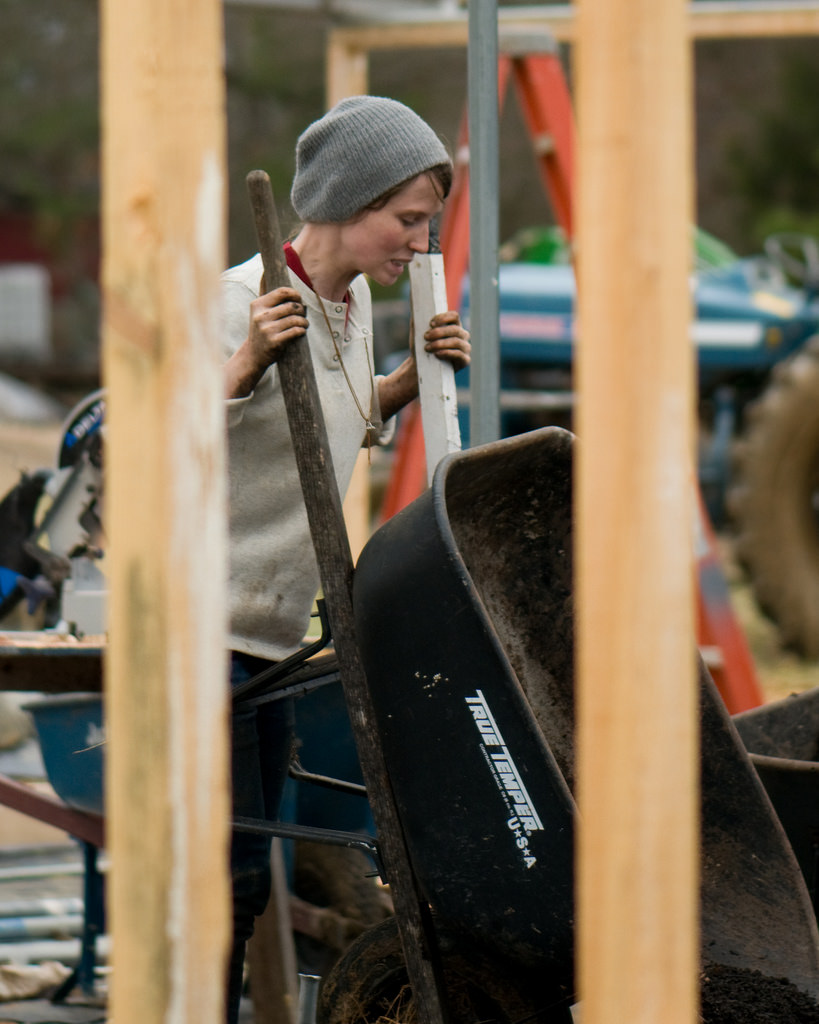
Again, many of these reasons should be explored. How can we as a group be more hospitable? I think an easy way would be to ask mobbers who have been to several mobs to look for new faces and make sure they are properly introduced and welcomed. This does not mean to inundate them with hugs and handshakes, but rather make sure they are oriented and introduced, make sure they are comfortable with the task they are taking up, and, if they are inexperienced, make sure they are partnered with an experienced group or individual. Through this single task, I think we can get more returning mobbers.
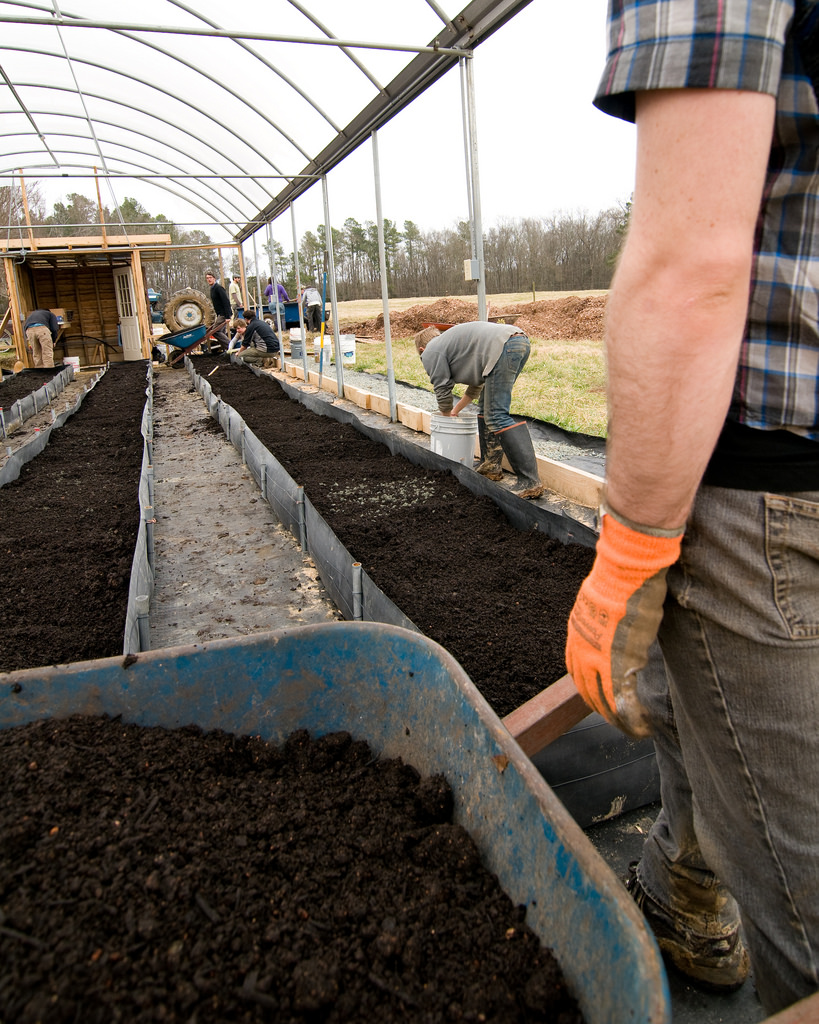
The final stage is a confirmation. The users of the Crop Mob idea return to use it again or set off to start their own mob in another part of the state, country or world. The idea becomes known for its viability and ease of use.
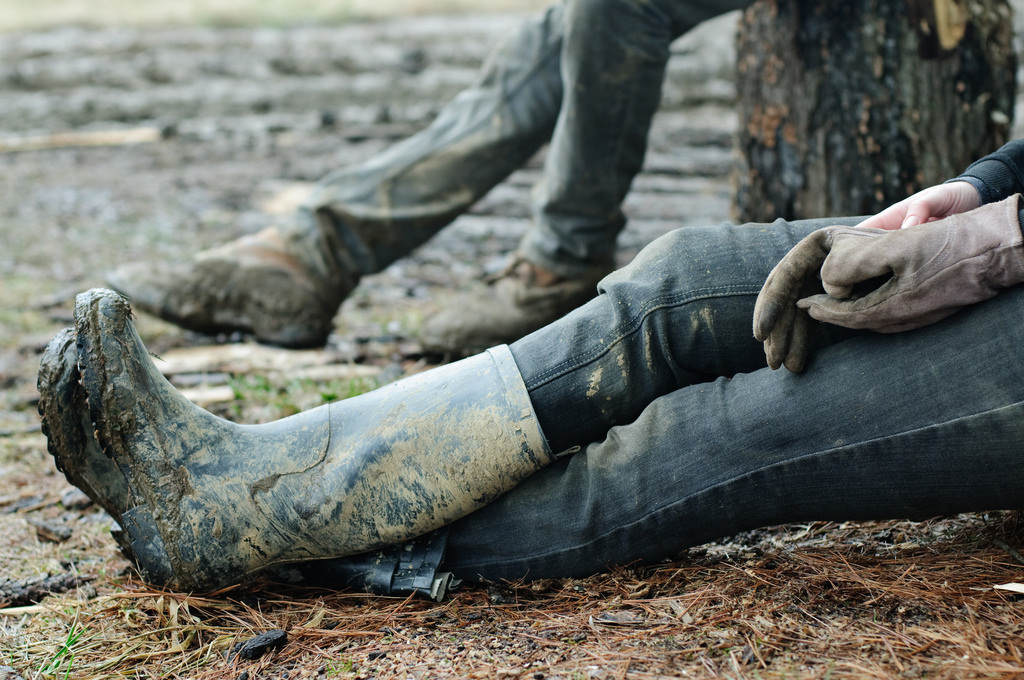
February 12, 2010 at 8:49 pm
Y’all beautiful: your writing, ideas and photography. Thanks for keeping this site up, thanks for doing what you do, thanks for being inspiring. I’m working on a garden project up here in a college town in the mountains, writing a proposal to establish a garden at the library where I work, trying to get connected with the local sustainable folks up here. And I keep thinking of the phrase, “new blood in the old body,” while I’m doing it.
Thank you for being.
Pingback: How to Become Part of a Crop Mob | Appalachian Feet
February 25, 2010 at 12:03 pm
I’m thrilled to find your blog, this is so inspiring! I’ve already contacted several local farmers to gauge interest in a Crop Mob for our area. I think we’ve got the support system in place and we just need to engage! I’ll be looking to this site for guidance as we get this idea planted and growing.
February 25, 2010 at 2:49 pm
Hey Trace, just wanted to say congratulations about the NYTimes piece today. For ONCE no snark, no put-downs, simply some nice reporting from that dreaded publication: they actually sounded envious of what you’re doing.
And it must be gratifying. And tiring too.
Still rooting for you out here in the Hinterlands.
March 6, 2010 at 7:22 pm
Trace,
Love your blog. I used your definition of Crop Mob over at my site utopian economics under Lingua Utopia. Abundance to you all your comrades.
-Jim